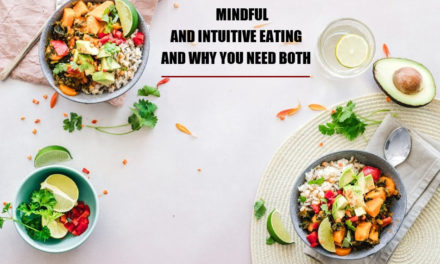In this post: Looking for ways to make friends as an adult? Forming adult friendships takes effort and vulnerability. But, by actively seeking out opportunities and being open to new experiences, you can create a strong support system and fulfilling friendships in your adult life.
I stood at my apartment window, staring at the unfamiliar cityscape stretching out before me. Relocating is never easy! But this new job opportunity had my name written all over it.
It’s been a few months and the loneliness of the new city was beginning to eat away at my inside. I had left behind my close-knit group of friends and the need for companionship and a sense of belonging tugged at my heartstrings.
The realization hit hard. I longed for genuine connections that would bring joy and a sense of fulfillment beyond these apartment walls.
Making friends as an adult can be a daunting task. Unlike in your childhood or teenage years, where you were constantly surrounded by peers and had ample opportunities to make new friends, the adult world can feel isolating and lonely.
You may have moved to a new city for work or studies, left old friendships behind due to distance or life changes, or drifted apart from your old friends.
Whatever the reason may be, the struggle to make new connections and form meaningful friendships as an adult is a common experience for many. But, it’s not impossible. Let’s take a look at some ways to make friends as an adult.
Benefits Of Making New Friends As An Adult
Making friends as an adult is important for various reasons, contributing significantly to your overall well-being and quality of life.
Here are some key reasons why it’s important to build and maintain friendships in adulthood:
- Social Support and Connection
Friendships provide a vital source of social support that can help you navigate the challenges in life. Meaningful connections with others can contribute to your emotional well-being which can help to decrease feelings of loneliness and isolation.
- Mental Health Benefits
Human interactions and friendships have been associated with improved mental health. Your friends can offer a strong support system during times of stress or depression and provide comfort and understanding during difficult times.
- Diverse Perspectives and Growth
Connecting with your friends can help you discover different viewpoints, cultures, and lifestyles. When you interact with different groups of friends it can help to boost personal growth, broaden your mind, and challenge existing beliefs.
- Shared Experiences and Memories
Shared laughter, joy, and even challenges strengthen the bonds of friendship and provide a sense of belonging. Your friends can contribute to the creation of shared experiences and memories, increasing the richness of your life.
- Professional Networking
When friendships extend beyond personal life they can have professional benefits. Networking through friends can open up opportunities for career growth, job referrals, and collaborations.
- Increased Happiness and Life Satisfaction
Having close relationships is positively correlated with increased happiness and life satisfaction. Meaningful connections and a sense of community contribute to an overall sense of fulfillment.
- Coping with Life Transitions
Friends offer valuable support during significant life transitions such as job changes, relocations, or relationship shifts. When you have a network of friends It can help you to navigate transitions more smoothly.
- Reduced Risk of Mental Decline
Engaging in social activities with friends keeps the mind active and stimulated. Maintaining social connections has been associated with a lower risk of memory loss in older adults.
- Enhanced Communication and Interpersonal Skills
Building and maintaining friendships hones communication and interpersonal skills. Friendships provide a safe space to practice effective communication, conflict resolution, and empathy.
- Mutual Support and Reciprocity
The mutual nature of friendships creates a sense of interdependence bond and shared responsibility. That is to say, friendships involve a give-and-take dynamic where both parties support and uplift each other.
- Stress Reduction
Socializing with friends can be a healthy outlet for relaxation and stress relief. Friends serve as a buffer against stress, providing emotional support and understanding during challenging times.
- Long-Term Companionship
Friendships established in adulthood can blossom into long-term companionship. Having enduring friendships adds stability and continuity to your life.
Why Is It Hard To Make Friends As An Adult?
When you’re trying to make friends as an adult, it can be tricky because of various factors that differ from those in childhood years or adolescence.
Here are some reasons why it can be hard to make friends as an adult:
- Limited opportunities for social interactions.
- Fear of rejection or judgment.
- Familiar social circles.
- Difficulty in trusting new connections.
- Time constraints.
- Different stages of life.
- Shyness.
Strategies To Forge New Friendships in Adulthood

Navigating the challenges of making friends as an adult can be overwhelming, but there are a few strategies that can help make the process easier. This may require more effort and intentionality, but it’s still possible.
By being open, persistent, and trying out different strategies, you can expand your social circle and form meaningful friendships that can enrich your life.
Here are some effective ways to make friends as an adult:
1. Get involved In Activities Or Hobbies You Enjoy
Joining a club or group centered around an activity or hobby you’re passionate about is a great way to meet people with similar interests. This common ground can serve as a strong foundation for potential friendships.
Even if it’s a new hobby, learning something new can not only be fulfilling, but it also opens up the possibility of meeting others who share your interests.
So whether it’s a book club, hiking group, or cooking class, joining a club or group is a great way to meet people who share your interests. It’s also a fun and relaxed way to get to know others.
2. Attend Events And Social Gatherings

Keep an eye out for events in your community that interest you. This could be anything from a concert, or art exhibition, to a workshop to a charity event, just make an effort to attend social gatherings and put yourself out there.
Attending these events can provide opportunities for striking up conversations with others who live nearby. This way you can make new connections and potentially form friendships.
3. Utilize Technology And Social Media
Social media is not just for keeping in touch with old friends, it can also be a great tool for meeting new ones.
Here’s the thing, in today’s digital age, connecting with people has never been easier, social media can be extremely useful for connecting with others in your community or beyond.
You could use platforms like Facebook, connect with professionals on LinkedIn, or Meetup to join local groups and virtual events. Or, you can even use apps like Bumble BFF specifically designed to help adults expand their circle and make new friends.
4. Reconnect With Old Friends
Sometimes, the best way to make new friends is by reconnecting with old ones. So don’t hesitate to reach out and catch up with someone you haven’t spoken to in a while.
High school or college reunions are also other great ways to reconnect, You never know, old friends may be looking for renewed connections as well, so see if there’s potential for rekindling the friendship.
Just be sincere and genuine in your intentions and let them know that you value their friendship and would like to reconnect. Don’t be discouraged if things feel different as adults, be patient and open to embracing a new dynamic with your old friends.
Put your money where your mouth is and show your commitment. Instead of simply meeting for coffee or lunch, plan a catch-up activity that you can both enjoy together. This will help create new memories and deepen the bond between you.
5. Plan Group Outings Or Activities

Group outings or activities can be a great way to get to know multiple people at once and potentially form new friendships.
Consider organizing a game night, a hiking trip, or trying out a new restaurant with a group of people.
Think about it, friendship is a two-way street and requires effort from both sides. Be a good friend and you will attract good friends in return.
6. Join A Gym Or Fitness Class
Not only is working out good for your physical health, but this setting provides a natural and comfortable way to meet new people and expand your social circle.
Get acquainted with others in your gym or fitness class and you may find yourself forming long-lasting friendships.
Here’s the thing don’t limit yourself to age or background, these should not be barriers to forming friendships. You may be surprised by the unique perspectives and experiences others can bring into your life.
7. Volunteer
Volunteering is not only a great way to give back to your community, but it’s also a chance to meet new people who share similar values and interests.
Look for volunteer opportunities in areas that you’re passionate about and you may find yourself connecting with like-minded individuals.
Be open to new experiences, sometimes, the most unexpected places or situations can lead to meaningful friendships. Stay open-minded and embrace opportunities to try new things.
8. Network Through Friends
Strike the iron while it’s hot. Don’t hesitate to ask your current friends if they know anyone who shares your interests or hobbies.
Your friends provide a solid foundation of familiarity and trust which will make it so much easier to get the ball rolling and engage.
Specify the types of people you’re looking to meet. Whether they share your interests, work in your industry, or have similar outlooks on life.
You could even accompany your friends to social gatherings. Here you’ll have an advantage because when you’re introduced to others by mutual friends, it makes it easier to break the ice and therefore ease the initial awkwardness of meeting new people.
9. Consider Therapy
Consider therapy if you’re struggling to make friends as an adult. It may prove to be beneficial to seek counseling.
A trained professional can help you work through any underlying issues that may be hindering your ability to form friendships.
They can provide valuable insights and strategies for building new connections.
Techniques to Establish Genuine Connections As An Adult

Beyond small talk and superficial interactions, here are some ideas for finding and seizing these opportunities to establish genuine connections as an adult.
- Be Proactive And Reach Out: Take the first step in building a friendship by showing interest and being proactive. Don’t be afraid to initiate conversations or suggest plans with people who you would like to get to know better.
- Be A Good Listener: Building friendships requires being a good listener and showing genuine interest in what others have to say. Practice active listening and ask thoughtful questions to get to know someone better.
- Be patient and persistent: Making friends takes time and effort, so it’s important to be patient and not give up if you don’t see immediate results. Keep putting yourself out there, continue attending events and social gatherings, and eventually, you will find people who you click with and can potentially form lasting friendships.
- Be open and approachable: Having a positive and friendly attitude is important when trying to make new friends. People are more likely to want to be friends with someone who is warm and welcoming. So smile, start conversations, and show genuine interest in getting to know others.
- Be yourself: Authenticity is key to building genuine friendships. Don’t try to be someone you’re not or hide your true self. Instead, embrace your unique qualities and let them shine in your interactions with others.
- Ask meaningful questions: Instead of asking generic questions like “What do you do for a living?”, try asking more thoughtful and open-ended questions that can lead to deeper conversations. For example, “What’s something you’re passionate about?” or “What’s the most memorable trip you’ve been on?”
- Share personal experiences: Don’t be afraid to share your own experiences, thoughts, and feelings with others. Vulnerability can often lead to deeper connections and a sense of understanding between individuals.
- Show empathy and support: Everyone goes through struggles and challenges in life. Show empathy and offer support when someone opens up about their own difficulties. This can help foster a deeper level of trust and connection in a friendship.
- Make an effort to stay in touch: Building friendships takes effort and consistency. Make an effort to stay in touch with new friends, whether it’s through regular meetups, phone calls, or even texts. This shows that you value the relationship and want it to continue growing.
How to Break the Ice and Form Adult Friendships
Breaking the ice and initiating social bonds as an adult can sometimes feel intimidating or awkward, especially if you haven’t made new friends in a while.
But don’t be afraid to step out of your comfort zone. You never know what amazing friendships may come from these interactions. Here are some tips for breaking the ice and forming adult friendships:
- Find common ground: Look for common interests or experiences that you can bond over with someone. This can help ease any initial awkwardness and provide a starting point for conversation.
- Be curious: Show genuine curiosity about others and ask questions to get to know them better. This can help build rapport and show that you are interested in forming a friendship.
- Be yourself: As mentioned before, authenticity is crucial in forming genuine connections. Don’t try to be someone you’re not or force a friendship that doesn’t feel natural to you.
- Don’t fear rejection: Rejection is a normal part of forming relationships, and it’s important not to take it personally. If someone declines your invitation or doesn’t seem as interested in getting to know you, don’t let it discourage you from continuing to put yourself out there.
How To Cultivate Lasting Bonds Amidst Adult Responsibilities
The quest for friendship in adulthood can often feel overwhelming, especially when balancing work, family, and other responsibilities.
However, with proper effort and prioritization, you can still maintain and nurture your important friendships. Here are some tips for cultivating lasting bonds amidst adult responsibilities:
- Schedule regular catch-ups: Set aside dedicated time to catch up with your friends on a regular basis. This could be a weekly coffee date or a monthly dinner. Make it a priority and stick to your plans.
- Be understanding: Understand that everyone has different priorities and responsibilities in their lives. Be patient and understanding if your friends can’t always make time for you.
- Keep communication channels open: Even if you can’t physically meet up, keep in touch with your friends through texts, calls, or video chats. This will help maintain the connection and keep your friendship strong.
- Plan group activities: Instead of trying to find one-on-one time with each friend, plan group outings or trips where you can all spend quality time together.
- Be willing to compromise: As adults, our schedules may not always align. If a friend suggests a different time or day to catch up, be open to compromising and finding a time that works for both of you.
- Support each other: Friends are there for each other through thick and thin. Be there for your friends when they need support, and don’t hesitate to reach out to them when you need it as well.
- Celebrate milestones together: Whether it’s a birthday, job promotion, graduation, or a new baby, make an effort to celebrate each other’s milestones. This will help strengthen your bond and create special memories together.
- Share responsibilities: Don’t try to do everything on your own – share responsibilities with your friends. For example, if you’re planning a party or event, ask your friends to help out with organizing or bringing food.
How Do Introverts Make Friends As Adults?

Being an introvert doesn’t mean you can’t make friends. It may feel even more daunting and challenging as an adult. But, with some understanding and self-awareness, you can also form meaningful friendships in adulthood.
Step out of your comfort zone and take small steps towards building new friendships. Here are some tips for introverts to make friends as adults:
- Embrace your strengths: As an introvert, you likely have unique qualities that can make you a great friend. Embrace your strengths, such as being a good listener or having deep insights, and use them to connect with others.
- Start small: Making friends doesn’t have to mean joining large groups or attending loud parties. Start by making connections with one or two people at a time, in a more intimate setting that feels comfortable for you.
- Find common interests: Joining a club, organization, or class related to your interests can be a great way to meet like-minded individuals and form friendships.
- Don’t compare yourself: It’s easy to compare ourselves to others, especially in social situations. But remember that everyone’s journey is unique and there’s no right or wrong way to make friends.
- Take breaks when needed: As an introvert, it’s important to take breaks and recharge from social interactions. Don’t feel pressured to keep up with extroverted friends – listen to your own needs and take a break when you need it.
- Use technology to your advantage: Social media and online platforms can be a great way for introverts to connect with others without the pressure of face-to-face interactions. Don’t be afraid to reach out and start a conversation online.
- Be open-minded: Sometimes, friendships may form unexpectedly with people who have different personalities or interests than you. Be open-minded to meeting new people and give them a chance – you may be pleasantly surprised.
- Be patient: Remember that making friends takes time, especially for introverts who may need more time to warm up to people. Be patient with yourself and the process, good friendships are worth the wait.
Conclusion On Ways To Make Friends As An Adult
Friendship is a beautiful aspect of life that knows no age limit and despite the challenges, as you grow older, it’s important to continue building new connections and expanding your social circle.
By being open, getting involved in activities and events, utilizing technology, and being genuine, patient, and persistent, you can form meaningful connections with others that will enrich your life.
It’s never too late to make new friends and create new memories together. Get out there and start building new friendships.























